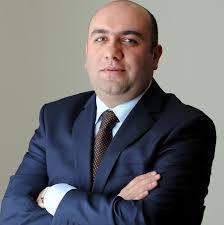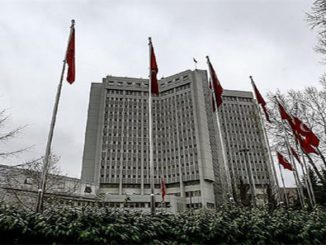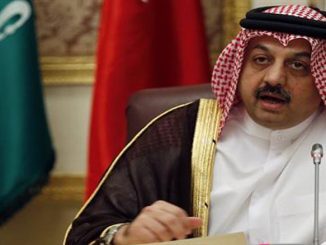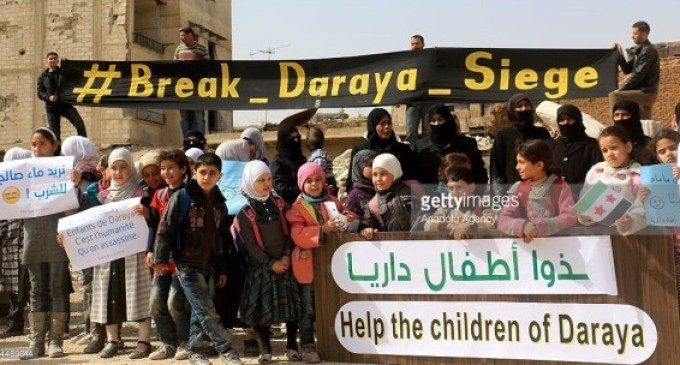
By: Çetiner Çetin*
Every day we are waking up to a new variable in the Syria equitation which cannot be resolved for almost six years. While various domestic and foreign players are changing the guard in the country, which has become a war laboratory, the game itself has also begun changing. Both energy and anger in Syria are stuck in Aleppo.
Stephen O’brien, UN Under-Secretary-General for Humanitarian Affairs and Emergency Relief Coordinator, said that Aleppo was turning into a giant graveyard during the UN Security Council’s extraordinary session which was held to discuss the humanitarian crisis in Aleppo. According to the Syrian Observatory for Human Rights (SOHR), more than 50,000 people have had to leave their homes since the regime forces intensified attacks to seize the city’s rebel-held parts. The Financial Times reported that Syrian opposition leaders and Russia held secret talks in Ankara to end the conflict. Moscow also proposed the UN to build four human corridors in eastern Aleppo. The proposal still remains inconclusive as Russia and the opposition could not reach an agreement in secret talks. In short, Aleppo preferred to resist.
Therefore, what is happening in the triangle of Aleppo, al-Bab and Raqqa is probably the most curious question these days. Certainly, the content of Ankara’s diplomatic talks with Moscow, Tehran, and even Arbil is quite engrossing as well.
Close contact with Moscow
After the Syrian regime killed four Turkish soldiers and injured nine others in recent days by targeting the Turkish forces which support the Free Syrian Army (FSA) as part of the Operation Euphrates Shield, Ankara intensified negotiations as an influential party in the Syrian crisis and expanded them to all axes.
The most active negotiations were held between Ankara and Moscow. Turkish President Recep Tayyip Erdoğan personally undertook the meeting and held three telephone conversations with his Russian counterpart, Vladimir Putin, within a week – which is a rare development in bilateral relations. They discussed the latest developments in the battlefield and the political arena in Syria and the ways to find a solution to the humanitarian tragedy in Aleppo. However, there is yet to be found a rational solution to the Aleppo issue. One of the biggest problems was whether Russia would condone the withdrawal of FSA forces from the city center or choose to consider the FSA and Al Nusra to be the same and continue attacks? Aleppo preferred to resist inside, instead of disappearing outside.
It is possible to say that the conversation with Moscow relieved Ankara. As a result of intense contacts between Turkish and Russian chiefs of staff, it was made clear that Moscow was not a party to the airstrike conducted by the Syrian regime against Turkish soldiers and that the Syrian regime did not offer intelligence to Russia while conducting the airstrike. Soon after talks with Russia proved conclusive, Ankara initiated intense talks with Tehran. This was because the initial information coming from the scene about the attack in Syria was that the Iran-affiliated fractions in the Syrian air forces had taken
the action and carried out the attack. Following this, Foreign Minister Mevlüt Çavuşoğlu and National Intelligence Organization (MİT) Head Hakan Fidan went to Tehran.
Meanwhile, the US has a very different agenda. While Washington is busy with how the power will pass from Barack Obama to Donald Trump, it seems all regional and international forces and the reality on the field will force the US to directly join the Syrian war. So, it will not be an easy start for Trump, and Obama’s strategy of “no boots on the ground” might be put into cold storage.
Syria’s agenda
Let us move on a chronological basis. A month before the US presidential election on Nov. 8, Russia, along with is allies in Damascus and Tehran, brought together power elements which were needed to reclaim the eastern neighborhoods of Aleppo. Moscow undertook the active role in the Syrian airspace, while regime forces and Iranian militia like Hezbollah were deployed on the ground. After seizing the control of the Syrian airspace in this way, Russia took its allies under its protection against the pressure of coalition forces. This provided room for maneuver for the PKK’s Syrian wing, Democratic Union Party (PYD), in the scene.
In addition to Russia, Iran also wanted to establish a barrier to isolate the northern part of Syria from the influence of Turkey and the opposition. In return, Turkey had already directly entered the scene through the Operation Euphrates Shield against the terror targeting the country. One of Ankara’s main priorities was to prevent the formation of a PKK zone on the Syrian border, and this zone was divided with the Operation Euphrates Shield. Now, the regional energy is stuck in al Bab, and it is expected that the calculations of all parties will again meet in this district.
After Turkey downed a Russian fighter jet on the grounds that it violated the Turkish airspace on the Syrian border on Nov. 24, 2015, Turkish-Russian relations experienced a crisis which led heavy political and economic consequences.
Ankara has taken coordinated steps with Moscow to avoid a second crisis and prevent a possible conflict. Also, it also made it clear that the operation carried out with the FSA in Syria was directly aimed at terrorist organizations.
However, while the operation was underway, Turkish troops and Turkey-backed FSA forces stopped at the gate of Al Bab. Meanwhile, while opposition forces engrossed the Syrian army in Aleppo, they tried to prevent DAESH from hiding in regime-held districts and to change the strategic intersections of groups taking part in the conflict. However, the desired result could not be obtained.
On the other hand, UN Arab League Envoy to Syria Staffan de Mistura presented a project of establishing local governments in the eastern neighborhoods of Aleppo in an effort to consolidate the imposition regarding the division of Syria.
Syria rejected Mistura’s offer. The Syrian army and its allies started fighting to reclaim the eastern neighborhoods of Aleppo in order to deal an additional blow to the division project. Prior to the operations, Turkey tried to test the water in the opposite party and
mobilized the FSA toward al Bab. In retaliation, however, a wing close to Iran in the Syrian army carried out an airstrike on Nov. 24, 2016, in which three Turkish troops lost their lives.
Ankara waits patiently
As the Syrian regimes maintained the Aleppo operation, it formed a new military unit consisting of Arabs and the PKK. Unexpectedly, this unit moved toward al Bab.
For this reason, Ankara acted immediately. Çavuşoğlu and Fidan’s surprising visit to Tehran following talks with Russia was very important in this regard. The visit coincided with the Iraqi Parliament’s approval of a new law legitimizing the existence of the Shiite al Hashd al Shaabi troops. Therefore, it is necessary to look at the Tehran visit from a broad perspective that includes negotiations in Syria and Iraq. This is because Ankara is negotiating the Syria issue with Russia; and both the Syria and Iraq issues with Iran.
Turkey was aiming to resolve the power balances behind the Syrian regime through these talks.
In fact, all options lying ahead of Turkey have different risks. In return for the painful experiences experienced by the opposition in Aleppo, Ankara has to create a radius of action in Al Bab. As such, it is expected to make very reasonable moves to this end. Ankara’s acceptance of the airstrike against Turkish troops in recent days might cause despair and harm the Turkish Armed Forces’ (TSK) deterrent and strong image in the region.
Likewise, the failure to control al Bab is not an endurable situation. This means that Ankara has to consent to the red lines drawn for itself. Ankara is not a player which will withdraw into its shell and consent to the process set for itself.
Even if Turkey maintains contacts with Russia and Iran, it is never ever ready for an adventure in these relations. Therefore, if it enters al Bab without making correct calculation, it will have the risk of confronting with the Syrian army. In addition, regime-backed new units consisting of Arabs and the PKK will also side with the Syrian army against the TSK in al Bab. In short, this is a plan to suffocate the TSK among DAESH, Hezbollah, Syrian army, PYD/ People’s Protection Units (YPG) and other groups in Syria. In short, it is time to revise all calculations and alliances in Syria.
*Çetiner Çetin is a Turkish journalist. He wrote this article exclusively for the Middle East Observer on Monday, Dec. 5, 2016.



